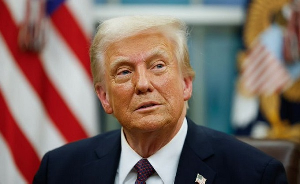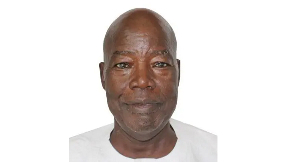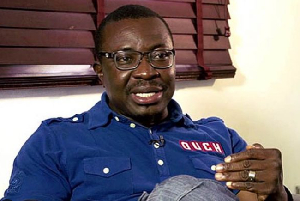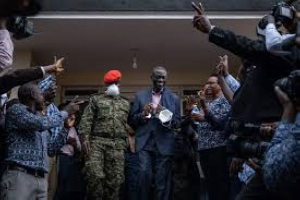In Ghana, where multiple languages and dialects are spoken, the role of radio and TV presenters becomes even more critical, particularly during the political season.
Accurate translation and interpretation of news headlines into local languages are essential to prevent misinformation. Misinterpretation can lead to significant misunderstandings and even social unrest.
Therefore, addressing this issue is crucial for maintaining the integrity of news reporting, especially in the context of partisan politics involving major parties such as the New Patriotic Party (NPP) and the National Democratic Congress (NDC). Furthermore, political representatives should be given opportunities to correct misinterpretations when they appear on political talk shows.
Training and Education
One fundamental step in preventing the misinterpretation of news headlines is providing thorough training for presenters in both media ethics and linguistic accuracy. Presenters must be well-versed in the nuances of the local languages they broadcast in, ensuring accurate translation of complex political statements. For instance, a presenter should accurately convey an NDC spokesperson's policy details in Ewe, maintaining the original meaning and context.
Clear Guidelines and Standards
Establishing clear editorial guidelines and standards helps maintain consistency and accuracy in news reporting. These guidelines should include protocols for translating information and avoiding sensationalism, particularly when dealing with political content. For example, when covering a policy announcement by the NPP in Twi, guidelines should ensure that translations are precise and contextually accurate, avoiding any embellishment or misrepresentation.
Accountability Mechanisms
Implementing accountability mechanisms such as internal audits, peer reviews, and feedback systems ensures the integrity of news reporting. These mechanisms allow for continuous monitoring and evaluation. If a presenter misinterprets an NDC manifesto promise during a broadcast in Ga, the accountability system should identify this error, and a correction should be issued promptly and transparently, reinforcing the organization’s commitment to accuracy.
Community Engagement
Engaging with the local community helps improve news accuracy. Understanding the concerns and issues that matter most to the community ensures that reporting is relevant and trusted. For example, in a community with strong support for the NDC, engaging with local leaders and residents can provide insights that ensure the news coverage in Fante accurately reflects the community's views and issues. This engagement can also help identify potential misinterpretations or biases in reporting on both NPP and NDC activities.
Fact-Checking Units
Creating dedicated fact-checking units within news organizations can prevent the dissemination of false information. These units should be proficient in local languages to verify the accuracy of information before it is broadcast. For instance, if a rumour spreads that the NPP government has abolished certain taxes, the fact-checking unit should verify this claim in the local languages before reporting. Similarly, if there is news about the NDC's stance on an international trade agreement, the unit should ensure the accuracy of these details in all relevant local languages.
Balanced Reporting
Balanced reporting, which involves presenting multiple perspectives on a story, is essential for providing a well-rounded understanding of issues. This approach helps prevent the spread of biased or incomplete information, enabling the audience to form informed opinions. During the political season, it is especially important to give equal airtime to all political parties and perspectives in all local languages.
For example, a debate on a new economic policy should include viewpoints from both NPP and NDC representatives, as well as independent economists, and be accurately translated into the major local languages spoken by the audience.
Regular Training Updates
The media landscape is constantly evolving. Regular training updates for presenters keep them informed about new developments in media ethics, reporting standards, and linguistic nuances. Continuous education ensures that presenters have the latest tools and knowledge to perform their duties effectively, particularly when translating political content. For example, new training sessions could focus on how to accurately translate emerging political terms and concepts into local languages.
Public Corrections
Making public corrections promptly and clearly when errors occur is crucial for maintaining credibility and trust. A transparent approach to correcting mistakes demonstrates accountability and a commitment to truth, reinforcing the integrity of the news organization. For example, if a news report incorrectly states in Hausa that an NPP policy will be implemented immediately when it is still under parliamentary review, a public correction should be issued in Hausa as soon as the error is discovered.
Use of Technology
Leveraging technology for real-time fact-checking and verification can enhance the accuracy of news reporting. Advanced tools can help presenters quickly cross-check information and its translations before broadcasting it to the public. For instance, if a breaking news story involves a claim about the NDC’s new healthcare initiative, presenters can use fact-checking tools to verify and accurately translate the claim’s validity in real time.
Listener and Viewer Education
Educating the audience on media literacy is essential for combating misinformation. By helping listeners and viewers develop critical thinking skills, they become more adept at evaluating information and understanding the importance of seeking multiple sources. For example, news segments could include tips on how to identify credible news sources and avoid sensationalist headlines, particularly those that might distort the positions of the NPP or NDC when translated into local languages.
Opportunities for Political Representatives to Correct Misinterpretations
Providing opportunities for political representatives to correct misinterpretations during political talk shows is essential. This ensures that any inaccuracies are addressed promptly and allows politicians to clarify their positions directly to the public. For instance, if an NPP representative's statement on healthcare is misinterpreted in a local language broadcast, inviting the representative to clarify their stance on a talk show can prevent the spread of misinformation.
Similarly, if an NDC policy proposal is inaccurately reported, a party representative can correct the record during a live discussion, ensuring that the audience receives accurate information.
Examples from Ghana's Political Landscape
1. Misinterpretation of NPP Policies in Local Languages: During a radio broadcast in Dagbani, a presenter might misinterpret an NPP policy on education funding, suggesting it will immediately provide free textbooks to all students. However, the actual policy may involve a phased rollout over several years. Accurate reporting requires the presenter to clarify the timeline and implementation process in Dagbani, preventing unrealistic expectations and misinformation. Inviting an NPP representative to discuss this policy on a talk show in Dagbani can further clarify any misunderstandings.
2. Allegations Against NDC Officials in Local Languages: If allegations of corruption against an NDC official arise, it is crucial for presenters to report verified facts in the local language.
Rather than sensationalizing the story with unverified claims, presenters should provide a balanced view by including statements from the official, responses from the NDC, and comments from independent legal experts, all accurately translated into the relevant local language. Allowing the NDC official to appear on a talk show to address these allegations directly in the local language can help ensure the audience receives a complete and accurate understanding.
3. NPP and NDC Election Campaigns in Local Languages: During election campaigns, both NPP and NDC make numerous promises and claims. Presenters should ensure these claims are fact-checked and accurately translated. For example, if the NPP claims a significant increase in job creation, the fact-checking unit should verify these figures with independent sources before the claim is broadcast in Ewe.
Similarly, if the NDC promises new infrastructure projects, details about funding and feasibility should be scrutinized and reported accurately in Twi. Hosting representatives from both parties on talk shows to discuss and debate these claims in local languages can provide the audience with a clearer and more balanced understanding.
4. Public Reactions to NPP and NDC Policies in Local Languages: Community engagement is vital in reporting public reactions to policies. For instance, if an NDC policy on agriculture receives mixed reactions from farmers, presenters should interview a diverse group of farmers and accurately translate their responses into the local language.
This approach ensures that the audience understands the varied impacts of the policy. Allowing local farmers to express their views directly on talk shows in their native languages can further enrich the discussion and provide first-hand perspectives.
In conclusion, preventing the misinterpretation of news headlines by presenters in Ghana's radio and TV stations, especially during the political season, requires a comprehensive approach. By ensuring thorough training, clear guidelines, accountability mechanisms, community engagement, dedicated fact-checking, balanced reporting, regular updates, public corrections, technological tools, and audience education, news organizations can significantly enhance the accuracy and reliability of their reporting.
Providing opportunities for political representatives to correct misinterpretations on talk shows further ensures that the public receives accurate and trustworthy information. These measures protect the integrity of the news and foster a more informed and engaged public, strengthening the foundation of Ghana's democratic society, particularly when reporting in local languages.
Opinions of Saturday, 22 June 2024
Columnist: Mileba Godwin Kwame















